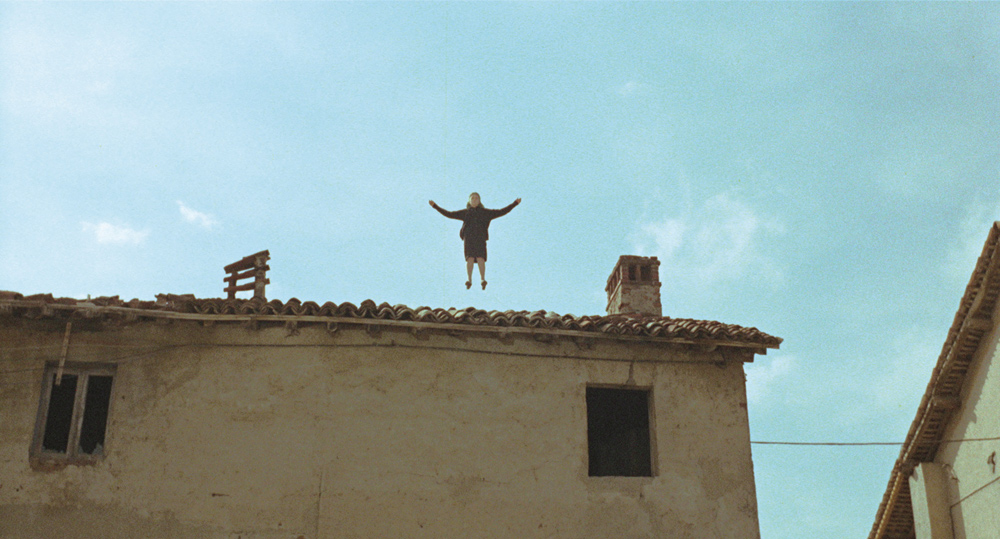2022.03.06
"Teorema" synopsis
One day, a beautiful young man suddenly appears in front of a wealthy family living in a mansion on the outskirts of Milan, a large city in Italy. Her father, Paolo, is the owner of a large factory with many workers. Lucia, the beautiful wife who seems to be leaning towards her husband, the innocent son Pietro, the daughter Odetta, and the maid Emilia. The young man, who starts living with them without any warning, charms each of them and starts a relationship with them, disrupting the bourgeois' peaceful days. Provoked and driven crazy by the young man's sexual charm and divine incomprehensibility, the family begins to fall apart as soon as the young man leaves...
Index
Breaking the theorem
Pier Paolo Pasolini's ``Teorema'' (68) destroys the narrative structure indicated by the title ``Theorem'' in Japanese translation, but rather by structure. A visit from a man (Terence Stamp) whose background and name are unknown leads to a tragic breakup of the bourgeois family, but was this really the result of a "theorem"? It leaves many mysteries that cannot be explained. This film, which marks the midway point of Pasolini's career as a film director, contains many elements of ``morality and confusion'', such as the line ``My own morality, my own confusion'', which Paolo, the father of a bourgeois family, confesses to a visitor. There are a lot of fluctuating emotions swirling around, and that's what makes this work so appealing.
The postman played by Ninette Davoli, who always adds a lightness to Pasolini's films, bounces around like a fairy on a beautiful sepia-toned screen, delivering news of visitors. Swinging London-style pop music begins to play in the mansion, as if to welcome visitors. The party scene seems to be entertaining Terrence Stamp himself, who was dating legendary model Jean Shrimpton (they had already broken up at the time of filming). A visitor who carries the wind of London. This scene is followed by a scene of a visitor sitting in a garden reading a book, and the film quickly begins to take a big turn.
"Teorema" preview
Emilia (Laura Betti), who works as a maid for a bourgeois family, becomes a "captive woman" with just one look at this young man. Or was she already a "captive woman" and was released by the arrival of a visitor? In any case, the maid is ashamed of herself for having lusted after a young man, and tries to commit suicide by holding a gas hose in her mouth. She is rescued by a visitor who arrives.
Here, the image of her repeatedly running through the garden is etched into my mind as a strong afterimage. In this work, the garden functions as a magnetic field of the family's ``morality and confusion,'' a magnetic field that leaves traces of swirling emotions. The postman jumps around the garden, Emilia runs, Odetta (Anne Wiazemsky) takes mysterious steps, and visitors can take memorable photos in various poses. .
Visitors are seen off by this family and quickly leave. There are very few words left by him. As he approaches his mother, Lucia (Silvana Mangano), who is lying naked, the overlap of the sun's rays gives the illusion of a demonic halo. He is fully aware of his own charm. Still, I don't think there was any malicious intent to deliberately seduce bourgeois families. He simply existed as ``a person who attracts all eyes.'' All that is left of the family here is the fact that everyone has become unstoppable due to his presence.

"Teorema" (c) 1985 - Mondo TV SpA
So who is this visitor who gives a revelation that destroys a family? Is he the savior who has descended to earth, or is he the destroyer? Pasolini rejects the interpretation of many critics that this man is Christ.
``He is a devil, or a mixture of God and the devil.'' (Pier Paolo Pasolini)*1
Terrence Stamp and Anne Wiazemsky


